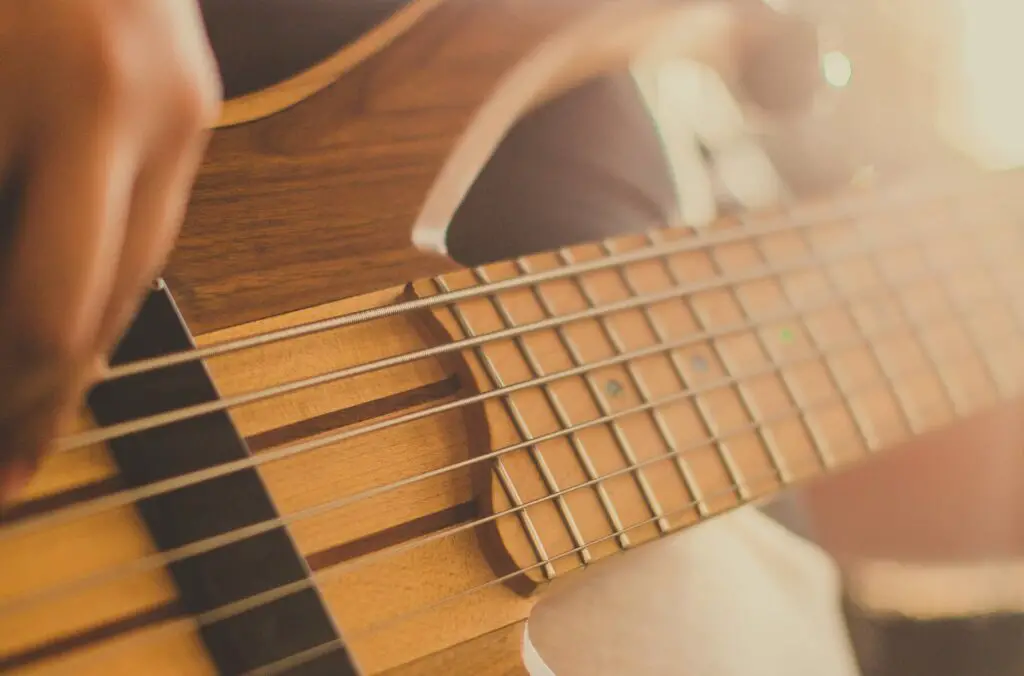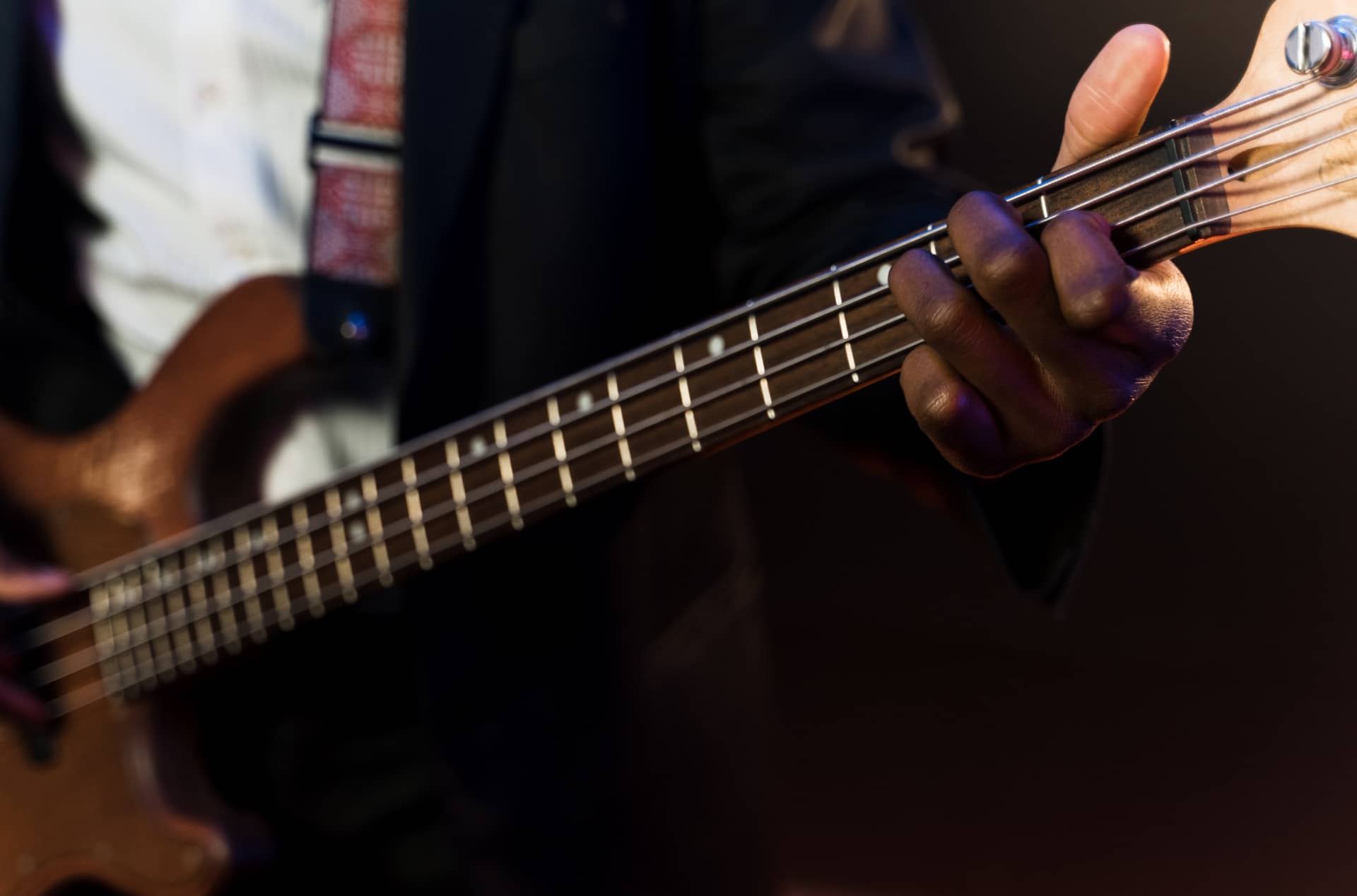Not being able to play the bass as fast as you want is annoying. Sometimes, this is simply because the bassline is beyond your current level. Other times though, it`s because of the playability of your bass guitar. So what should you do if your bass feels slow to play, and how do you make your bass neck faster?
A bass neck can be made faster by smoothing it out with extra fine steel wool, by lowering the action, or by switching to lighter strings. The playability and speed of a bass are also affected by the thickness of the neck, setup, and instrument quality.
The playability of a bass guitar is not strictly connected to its price range. However, higher-end instruments tend to have better build quality than entry-level basses in general. While neck speed is subjective, this generally results in higher-end basses felling faster.
Thus, this article consists of tips that can be applied to every type of bass guitar. Results will vary on preference and your instrument, but taking any or all of the steps below will make your bass neck feel faster.
1. Smooth it out with steel wool
If you have been playing your bass for a while and it has gradually felt slower, oils and debris from your fretting hand have in all likelihood built up on your neck.
Luckily, this can easily be solved by evening out your neck with some extra fine steel wool (Amazon link). This type of wool will not damage your neck when used correctly. However, stay away from steel wool that is not extra fine. Extra fine steel wool will is labeled #00000.
With the steel wool, rub the neck of the bass gently and carefully. I recommend rubbing across the neck, rather than up and down. This makes it easier to evenly smooth out the entire neck.
Go slowly, and inspect the neck as you go. How long you need to rub with the steelwool depends on the bass and its condition. Thus, start with just a couple of rubs on one area of the neck and assess whether it has been smoothed out enough as you go.
Once you have done this a couple of times and know how much you need to rub, rub the rest of the neck for a smooth and even result.

2. Lower the action
Another common reason that basses feel slow to play, is that they have too high action. Low action, means that the strings are closer to the frets, which results in smoother and faster playability.
The action on your bass is a result of several things. The strings, nut, setup, and the overall build quality of your bass all play a part in whether the action is high, and how much it potentially can be lowered.
It is easy to notice for yourself whether the action is causing your bass neck to feel slow. Are the strings more cumbersome to fret than on other basses? Also, is there an unnecessarily large gap between the strings and the frets? If the answer to both of these questions is yes, the bass has high action.
On cheaper bass guitars you can expect the action to be higher than on more high-end basses. Thus, depending on your bass, do not expect to get perfectly low action without experiencing fret buzz.
The action can be lowered with a truss rod adjustment. I explain how do this in detail in my article on bass maintenance.
3. Switch to lighter strings
Ever tried playing a bass that’s set up for ADGC tuning? Then you will know that heavier strings generally feel slower to play.
If the neck of your bass feels slow, heavy gauge strings might then be part of the issue. Heavier strings require higher tension and are thus more demanding to fret. This in turn makes the neck feel slower. Furthermore, heavy strings are more demanding for your plucking hand, which can be another reason that your playing feels slow.
However, there are some things you should be mindful of before blindly switching to a lighter gauge.
First of all, string gauge impacts tone. While bass tone is subjective, heavy and light gauge strings are often thought of as a trade-off between tone and playability. Heavier strings result in a more pronounced and powerful tone. Lighter strings result in easier to fret strings and superior playability.
Secondly, when playing in a deeper tuning than E standard, switching to a lighter gauge might not be ideal. This is because with too light strings your tone will sound powerless, sloppy, and often clanky, due to low tension.
If you want to prioritize playability over tone, I recommend this nickel wound 40-95 super light set from D’Addario (Amazon) This is about as light as you can go, while still maintaining the fundamental sound of your bass. The strings will sound thinner than you are used to, but you will still get a proper bass tone that gets the job done when playing with a band.
Conclusion
Some basses naturally feel slower than others. However, the tips above can be used to make the vast majority of basses feel faster.
Thus, if your bass still feels too slow after doing everything outlined in this article, it might not be possible to make it feel any faster. Still, there are some options you can still consider if this happens.
If the bass is bought second hand it could have been set up poorly, which can impact the speed. You could also consider switching out the neck. Regardless, I recommend taking your bass to a shop or a luthier at this point. They can help you diagnose why the bass feels slow. They can also help you if the lack of speed is a result of poor setup, or if you need to switch out the neck.
I also recommend trying out different basses and trying to identify why your bass feels slow. You might find that there isn’t too much difference between your own and other basses. If there is a difference, you will have a lot more to go on to identify why your bass feels slow and finding out what you can do about it.
An often-overlooked reason that bassists feel that their speed decreases is that they have cold hands. To learn more about how cold hands impact your speed and how to best deal with it, read my article on the subject here.

